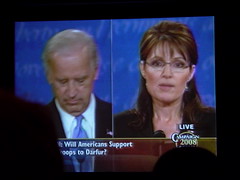 Science Daily News reports on a new national study from two sociologists out of Brigham Young University which concluded that religious involvement makes teenagers half as likely to use marijuana. The findings from the study are available in the October volume of the Journal of Drug Issues – allegedly settling a question scholars have traditionally disagreed upon.
Science Daily News reports on a new national study from two sociologists out of Brigham Young University which concluded that religious involvement makes teenagers half as likely to use marijuana. The findings from the study are available in the October volume of the Journal of Drug Issues – allegedly settling a question scholars have traditionally disagreed upon.
“Some may think this is an obvious finding, but research and expert opinion on this issue have not been consistent,” said BYU sociology professor Stephen Bahr and an author on the study. “After we accounted for family and peer characteristics, and regardless of denomination, there was an independent effect that those who were religious were less likely to do drugs, even when their friends were users.”
The study, co-authored by BYU sociologist John Hoffmann, also found individual religiosity buffered peer pressure for cigarette smoking and heavy drinking.
What is it about religiousity?
The term religiosity as used in the study has to do with people’s participation in a religion and not the particular denomination. Hoffmann said the protective effect of church and spirituality supplements the influence of parents.
“Parents shouldn’t force it, but they can encourage spirituality and religion in their families, which in itself becomes a positive influence in their children’s lives,” Hoffmann said.






